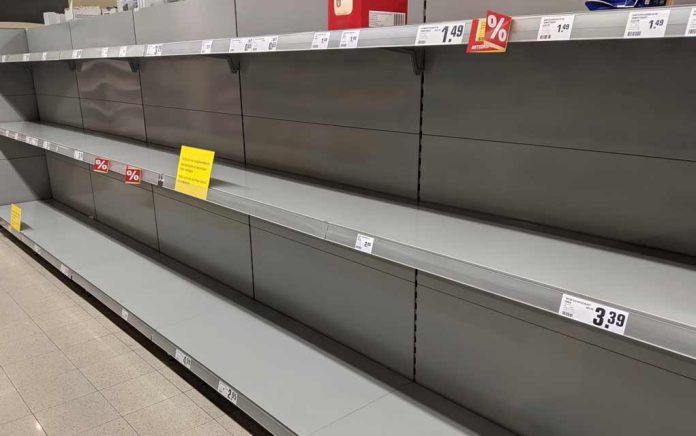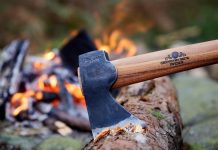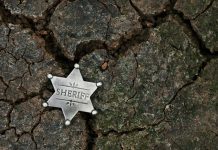(SurvivalDaily.com) – With COVID-19 numbers still steadily increasing, we need to be prepared for the long haul as there really is no end in sight to the pandemic. Think in terms of things like growing a garden, stocking up on food, medical supplies, and household items. Another thing to consider is the safety of you and your family; no one really knows how bad things could get.
Firearm Advantage
Purchasing a firearm is something you should consider now, if you haven’t already. But, buying a firearm isn’t really all that helpful if you don’t learn to use it and get as much practice and range time as you can. This will help you learn your weapon and how to use it effectively, and you’ll also find out which ways are more comfortable for you to handle the gun.
Shotguns are arguably the best weapons for home defense beginners. The longer barrel makes it easier to hit the target, but ammunition diversity is helpful as well. You can load it with alternating shells, such as birdshot and slugs. (Birdshot shells shot hundreds of tiny pellets “spraying” an area, so aiming isn’t as essential as opposed to slugs, which fire a solid piece of lead but have better range. In other words, if you haven’t perfected your aim yet, birdshot sprays wide enough to ensure you’ll most likely at least wound the target, if not hit it directly.
Handguns are also a very good option as many are lightweight and easy to handle. Be sure to buy hollow-point rounds for defense, if you buy a handgun. FMJ or full metal jackets are used more for target practice, and will go straight through a person most of the time.
Garden for Food and Medicine
Growing a garden is a good way to supply your family with food if a shortage happens, or if you just want to know exactly what’s going into your body. Not only can you grow food, but you can also plant herbs and other plants that have medicinal uses.
Growing for Sustenance
Beans are a very plentiful plant and grown easily, with some bean plants producing again after they are harvested the first time. Tomatoes are used in many dishes and are easy to grow in high numbers. When it comes to nutrients, start with things that grow quickly and can be grown from scraps. This way, you can start stocking up now, and will be able to grow another season without any sort of special orders necessary.
Medicinal Gardening
Growing plants for medicine is just as important as growing for sustenance. You probably already have medicinal plants growing in your yard or neighborhood and don’t even realize it. Others need to be cultivated at home.
Aloe Vera
Aloe vera can treat sunburn as it encourages skin cells to reproduce and heal faster. Eating 1 to 3 ounces of the gel at mealtime can also help relieve heartburn; just don’t ingest too much at one time or on an empty stomach, as aloe vera is also a natural laxative. If you have high blood sugar, eating one to two tablespoons could help you, but if you’re already on medication for high blood sugar use caution.
Dandelions
The reason you want to get these out of your yard or garden is that in many other areas they may be coated with pesticides. Considered by many as a weed, every single part of the dandelion is edible, but also medicinal. A well-known treatment for any condition having to do with the menses, dandelions are also known for their assistance with digestive issues.
Spice and Healing
Some plants help add flavor to your food, even while they provide health benefits. Thyme, basil, garlic, sage and mint are just a few.
Stocking Up
When thinking about long term food supply it’s best to think of stocking up for at least a year. If you grow a garden this will help your pocketbook, but there are plenty of foods you can stock up on at a relatively low price. Learn to make your own supplies and stock up on ingredients rather than pre-made goods for an even more cost-effective solution with plenty of diversity.
Every college kid’s favorite, instant noodles are super cheap and easy to make, only taking a few minutes to prepare. These noodles have a pretty long shelf life as well, and you can store them with ease. Another good way to get a year’s worth of food in your pantry with little impact on your wallet is MREs or Meal Ready to Eat packages. They’re not always the best when it comes to flavor, but it’s what the military uses, and is great as a last resort or on the go option. MREs last five years on average, but if stored properly some can last up to 10 years.
Dehydrated foods are also easy to prepare. While not as cheap as instant noodles, some of these you just put water in, seal the package back up and voilà, a meal that actually isn’t too bad. These packages have easy to follow instructions and typically two servings in them. They also have an extraordinary shelf life of around 25-30 years.
You can also stock up on meat and keep it in your freezer for extended periods of time. Just be sure to keep it frozen and only thaw it out when you are going to eat it. Thawing and refreezing meat will make it taste not so great, and you have the chance of contracting bacteria as well. Learn how to salt or dry your meat, and you can keep stocked even if you don’t have a means of keeping it cool.
Buying medical supplies is important as well. It’s hard to know how much you’ll actually use in a year, so buy as much as you can, it doesn’t hurt to have extra. Bandages, medications, ointments, and latex gloves or something similar are all great things to have. Buy a couple of nice first aid kits as these usually come with a variety of things covering a broad area of injuries. With more than one option, they’re easy enough to grab in a hurry and know you’re covered. Because no one ever went in search of a first aid kit without time being a factor.
When it comes to this specific pandemic, consider stocking up in vitamin C and D as well as tonic water and zinc. Consult your personal medical professional to learn about how you might safely use these items if and when the time comes. Remember, the idea is to be prepared ahead of time rather than waiting until the last minute.
Getting household supplies may not be as crucial as other things, but stock up if you have the opportunity. Don’t go and buy the entire store supply of toilet paper; get what you need. Soap and other cleaning supplies should be thought of, as well as disinfectants. You don’t have to buy that fancy body wash or shampoo, you can get cheap stuff too. This will save you money that can be spent on things like food and medical supplies.
Water is a huge deal as there may come a time when water can’t be supplied to your house. Stock up on water but research ways to collect, filter and purify your own water. You might even buy a water test kit, to ensure the water is not too basic or acidic.
There are many things you can buy to help you prepare for the worst. Hopefully, it won’t come to that, but we never really know. Something as simple as candles could be helpful, or even kerosene heaters or wood stoves to heat your house, as there could possibly be a long term power outage. The thing is no one really knows what’s going to happen. The best thing we can do for ourselves is to be as prepared as possible, stay safe and maintain proper hygiene.
Copyright 2020, SurvivalDaily.com

















